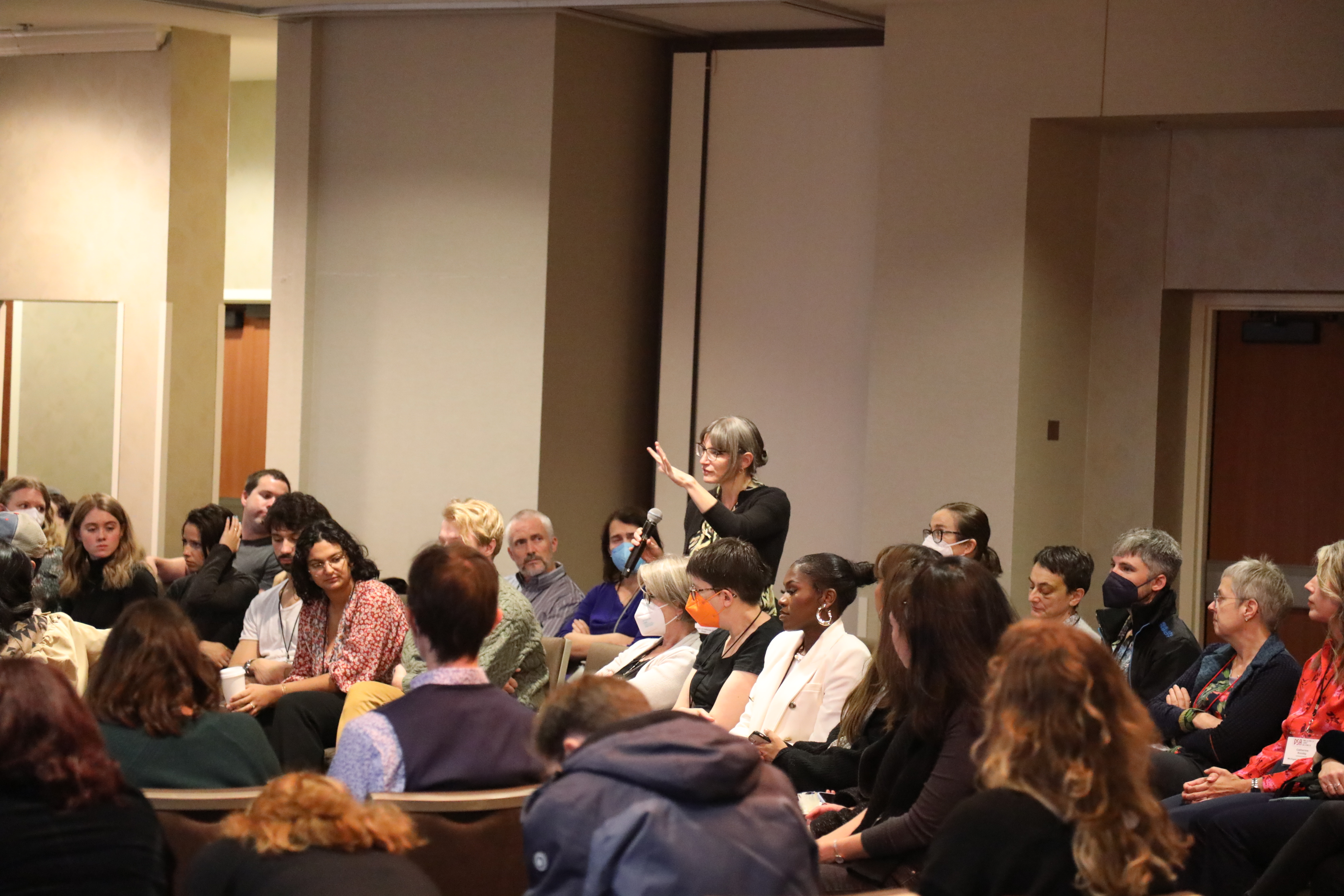Diversity Equity & Inclusion Caucus
The PSA Diversity, Equity, and Inclusion (DEI) Caucus was founded in November, 2006 at the PSA meeting in Vancouver, BC. It was formerly known as the Women's Caucus. The goals are to support marginalized scholars entering the philosophy of science, to provide an opportunity for networking among marginalized folks, and to raise the visibility of marginalized scholars in the field. The caucus is an umbrella organization supporting affinity groups (details below!) intended to achieve these goals for different groups of scholars. The Caucus is authorized by the PSA Governing Board and is accountable to that Board. Its co-chairs act as a resource to the organization on questions that are pertinent to diversity, equity, and inclusion in the profession as well as within the PSA itself. For more information, please see the Caucus' Bylaws.
(The Caucus' pages will be under construction through May 31st. Please excuse any issues in the meantime.)
Contacts
Co-chairs: Cailin O'Connor (University of California, Irvine), Kino Zhao (Simon Fraser University)
Secretary/Treasurer: Elliot Chen (Xavier University)
Listserv and webpages: Areins Pelayo (University of Illinois Chicago)
Instructions for subscribing and unsubscribing:
Email 'sympa@ucdavis.edu' with only the following information in the subject: subscribe psawomenscaucus [Your First name] [Last name]
Example: subscribe psawomenscaucus Jane Doe
To unsubscribe, email 'sympa@ucdavis.edu' with only the following information in the subject:
Signoff psawomenscaucus [Your email]
Example: Signoff psawomenscaucus Jane.Doe@xyz.edu
To send a message/news/CFPs etc:
Subscribe
Send an email to Listserv manager (psawomenscaucus-request@
ucdavis.edu , or apelay4@uic.edu), or send an email to <psawomenscaucus@ucdavis.edu>
Please note that we are still using the original "Women's Caucus" listserv for the moment.
PSA DEI Caucus List of Affinity Groups
From the Co-chairs, Kino and Cailin: If you'd like to join a group to see what it's about, or have a proposal for a new group, please email the chairs/contact people listed. Groups are encouraged to discuss with each other and their memberships to clarify their mission and reshape their scope, including splitting into two groups or combining with another similarly themed group. If new group ideas come to you during this period, we are always open to new proposals. We look forward to seeing what we can create together!
Diversity and Neurodiversity Working Group
Chairs: Joanna K. Malinowska (malinowska@amu.edu.pl) and Walter Veit (wrwveit@gmail.com) and Insa Lawler (mail@insalawler.com)
Description: As part of the efforts to broaden the Philosophy of Science Association Women’s Caucus to include other minority groups (Neurodiversity Affinity Group), we would like to both offer an opportunity to celebrate neurodiversity in our community and develop some propositions for making scientific events, platforms, and workplaces to be more inclusive and recognize this diversity. Unfortunately, neurodiversity has so far been given very little attention in efforts to promote the diversity in departments and/or events. We would like to invite and contribute to the discussion about how to improve upon that situation. Since neurodiverse people are highly varied, it is important to include many of us in debates of accessibility and openness, and we aim to provide a judgement-free space for discussion.
First Generation/English as Second Language (ESL) Affinity Group
Chairs: Chia-Hua Lin (clin@fairfield.edu) and Nadia Ruiz (naruiz26@stanford.edu)
Description: Writing philosophy can take more time for first gen/ESL philosophers of science; editing, especially for style or grammatical corrections, is a skill that can be developed, but it typically requires the extra pair of eyes from a more experienced writer or a native speaker, or both. To ease challenges related to academic writing for first gen/ESL philosophers of science, we would like to explore possibilities for hosting writing circles. The idea is to have volunteers from within the group to workshop papers with one another.
Academic life can be confusing to navigate especially for the first-gen philosophers of science. We identify three ways in which knowledge of academic life may be made more accessible for graduate students, early career PhDs, and even undergrads within the group. 1. Helping to navigate professional life. 2. Social support. 3. Financial resources available to students.
Phil Physics Group
Contact person: Chris Mitsch (cmitsch@uci.edu)
Description: The purpose of the philosophy of physics affinity group is to support and promote diversity, equity, and inclusion in the philosophy of physics community. The group intends to provide a forum for individuals to recognize, support, and join one another in building a philosophy of physics community for everyone. We expect to focus especially on connecting early-career scholars (graduate students and pre-tenure faculty) to resources, information, and like-minded scholars. The hope is to build a network through which early-career scholars can find informal mentors, collaborators, and research and service opportunities they might otherwise miss out on.
Affinity Group for Black philosophers of science.
Chairs: Quayshawn Spencer (qspencer@upenn.edu); Alexander Tolbert (altol25@sas.upenn.edu)
Description: The goal would be to promote the growth and flourishing of Black philosophers of science in the academy.
Mentors' Group
Chairs: Julia Bursten (jrbursten@uky.edu) and Kino Zhao (kino_zhao@sfu.ca)
Description: Just as few of us were taught how to teach, fewer were taught how to mentor. The goal of this group is to provide a space for mentors (of all kinds) to socialize, discuss challenges we face, sanity check, swap resources, etc. The helpdesk idea Julia Bursten proposed in the last meeting will be run as part of this group.
